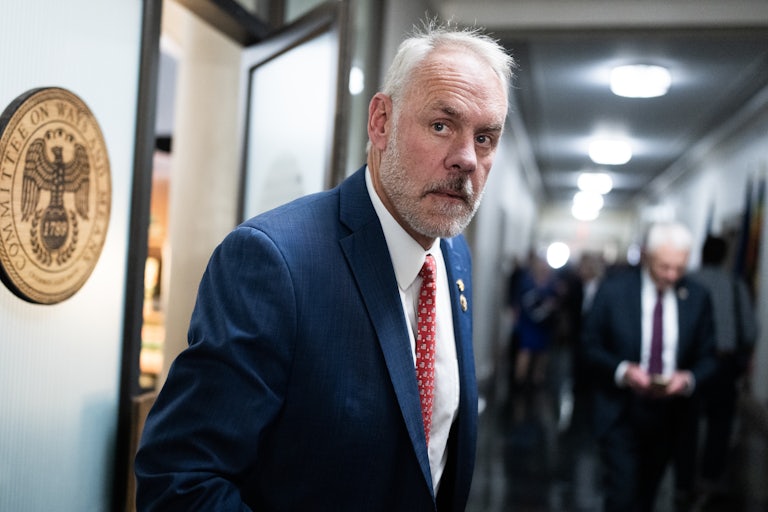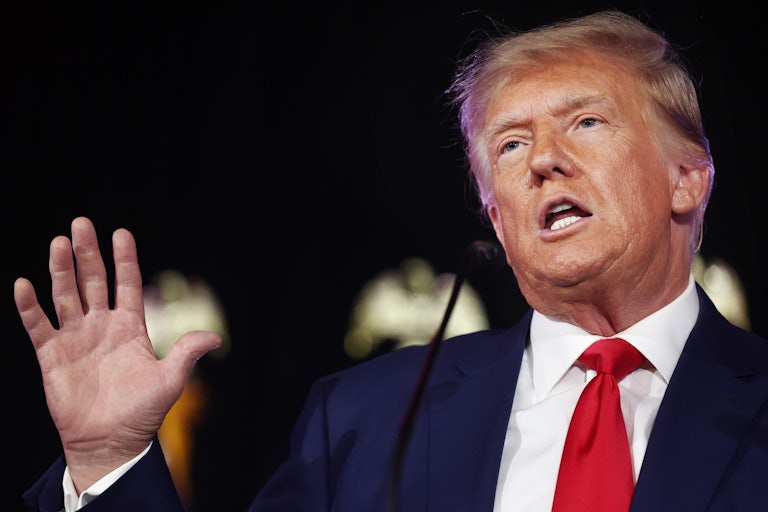Montana Republican’s Repulsive Palestinian Proposal Is Too Much Even for Pro-Israel Democrats
Former Trump Cabinet member Ryan Zinke is on the receiving end of a rebuke from two Jewish lawmakers.

Two Jewish Democrats are leading the charge against a repugnant proposal floated by Montana Republican Representative Ryan Zinke—a bill that seeks to “deport Palestinians” from the United States.
Representatives Greg Landsman and Dan Goldman, both of whom are staunchly pro-Israel in the ongoing conflict between that nation and Hamas, have come down hard on Zinke’s xenophobic proposal, which the former Trump secretary of the interior dubbed the “Safeguarding Americans From Extremism,” or SAFE Act, countering it with a resolution rebuking the bill and condemning its 10 Republican co-sponsors.
“They’re trying to expel an entire community of people from the United States,” Landsman said in a press release. “It’s un-American. It’s not who we are. And it’s going to get people hurt. We need these folks to pull back on this dangerous rhetoric and to stop adding fuel to this fire. It’s not helping the Israelis, it’s certainly not helping the Palestinians, it’s absolutely undercutting our role in pursuing peace and stability in the region and here at home.”
If passed, the SAFE Act would render Palestinian Authority passport holders inadmissible to the country, revoke visas issued to Palestinian passport holders on or after October 1, revoke the parole of passport holders on or after October 1, and direct Homeland Security and ICE to “identify and remove” Palestinian passport holders living in the U.S., according to a release by Zinke’s office.
In a joint statement issued by Landsman and Goldman, the pair argued that the rhetoric employed in the bill “unfairly and dangerously conflates Palestinians with Hamas and its actions,” and further decried the proposal as “un-American, bigoted, and … designed to inflame tensions which could result in violence.”
Zinke responded to the criticism by blaming the Biden administration’s alleged inaction on immigration, claiming they are “completely incapable of vetting anyone coming into our country,” Axios reported.
The escalating rhetoric is a sign that the Middle Eastern conflict has further divided Capitol Hill. Earlier this month, the two parties battled one another in a string of letters sent to Biden’s office, in which more than 100 Democrats asked the president to offer immigration protections for Palestinians. Days later, Republican Senators—including Senators J.D. Vance, Marco Rubio, and Rick Scott—sent their own missive, imploring Biden not to consider the special protections.








